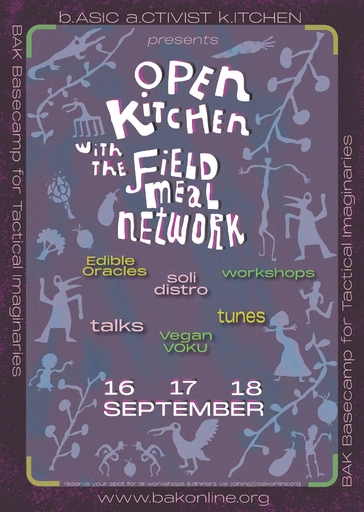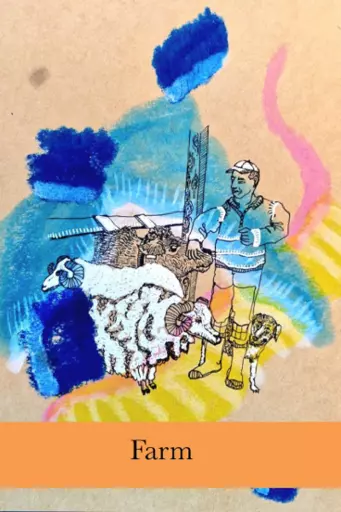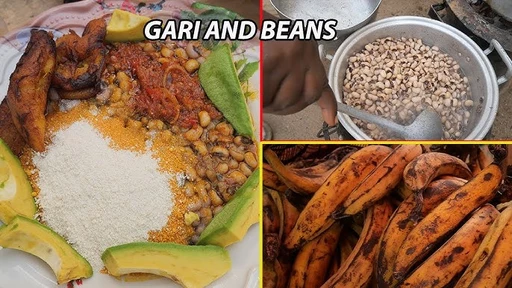
18 September 2025, 16.00 - 20.00
Open Kitchen: FieldMealNetwork Session
Roundtables, workshops, RadioShow, food & freeshop
Organized by the b.ASIC a.CTIVIST k.ITCHEN with co-conspirers in the FieldMealNetwork: Marina Monsonís (Barcelona), Giulia Orlandi (Berlin) and Abraham Tettey (Ghana)
16, 17 & 18 September
The b.ASIC a.CTIVIST k.ITCHEN is proud to introduce you to their extended international sporulation of collective food practices called the FieldMealNetwork. They are a tentacular network of kitchens located in museums and cultural institutions. The individuals who are part of this network cook, collaborate, and engage in culinary spaces that are institutional, para-institutional, underground, autonomous, cooperative, and self-managed.
The FieldMeal kitchens are shaped by the following axes of learning, research, and practice: migrant and diverse agroecology, food sovereignty, the re-transmission of glocal knowledge related to food, place-based pedagogies, transgenerational approaches, and the dynamization and creation of collective kitchens with a DIY (Do It Yourself) hybrid attitude, fostering communal joy.
Although the defined issues permeate these kitchens located in Berlin, Utrecht, and Barcelona, each of them is characterized by having deeper focuses on one or more of these aspects.
The network sees hospitality as a tool for social change and caring for each other in a time of social and cultural disruption. Durig these three days we will share food, soundtracks, skills, crafts and strategies to sustain each other’s food practices and Community Kitchen networks.
#FieldMealNetwork #UnlearningHospitality #RelearningHospitality #CookingUpCommunity #With-in/With-outInstitutions
*Tuesday, 15.00 – 18.00
NUTRITIOUS ORACLE:
Hacking the food system
a workshop to collectively co-create an oracle to think around food systems
with Marina Monsonís
We invite you to an oracle-creation gathering that connects spiritual sovereignty with food sovereignty.
In this snack–workshop we will conceptualize and collectively create cards. These cards would help connect us to food and invite us to reflect on the violences of the global industrial food system, as well as the alternatives and imaginaries linked to food sovereignty. We will draw with inks made from food scraps and work with images and photographs from food industry advertising. With these, we can make collages, hack meanings, and create eco-topian narratives towards an agroecological transition, guided by principles of environmental and social justice.
Each person will create a card that will become part of a collective deck reflecting our shared ecosystemic perspective on nourishing food.
As part of the activity, we will also honour and ritualize food and share a snack with herbal tea, prepared with recycled or proximity agro-ecological ingredients.
Followed by dinner by b.a.k.
*Wednesday, 14.00 – 17.00
Nourishing the Struggle: Embroidery, Resistance, and Political Somatics
A Workshop on Politics, the Body, and Collective Threading
workshop around the kitchen table
with Giulia Orlandi
This workshop explores the threads that connect food sovereignty, resistance practices, and care for bodies in struggle. Starting from the analysis of the genocide in Palestine and hunger as a colonial weapon, we will weave together political reflection and somatic practice to feel, understand, and transform our presence in grassroots movements.
Through both theoretical and embodied approaches, we will engage with urgent topics such as:
food sovereignty as a form of self-determination
hunger as a tool of oppression and a site of resistance;
the role of somatic practices in regenerative activism.
Followed by dinner by b.a.k.
19.00 - 20.00
RadioShow at StrandedFM
with Sonic Kitchen & Black Earth Radio
*Thursday, 16.00 - 20.00
GƆBƐ 2.0: SUSTAINABLE CARE STRUCTURES FROM DAAVI’S KITCHEN
workshop & cooking session with Abraham Tettey
This session explores gari and beans (Gɔbɛ), a humble yet iconic Ghanaian meal, as a lens for understanding care, solidarity, and resilience in everyday life. More than food, Gɔbɛ represents a survival system, nourishing students, workers, and families during economic hardship and social change. Its simplicity, adaptability and communal traditions offer valuable lessons for building alternative infrastructures of care within cultural spaces.
Through storytelling, shared tasting and participatory discussion, we unpack the cultural, ecological and social significance of this dish, considering questions such as:
How do simple, affordable meals sustain life and dignity during crises?
What can these informal systems of care teach cultural spaces about building adaptive and sustainable infrastructures?
How does food sovereignty intersect with urban agroecology and community kitchens?
Gari and beans, affectionately called Gɔbɛ, has long been a symbol of resilience and community care. Historically, it became popular during periods of economic hardship and student activism, feeding thousands affordably when resources were scarce. ”Daavis”, women renowned for preparing the best Gɔbɛ, were central to this story, creating kitchens that acted as informal social infrastructures/economies, feeding students, workers, and families and sustaining communities through difficult times.
Beyond its affordability, Gɔbɛ is celebrated for its nutritional richness. The starch from gari provides sustained energy, beans supply protein and iron, palm oil adds healthy fats and vitamins, and fried plantains contribute additional energy and flavor. This combination makes it an ideal meal for physically demanding work, such as construction labor, where sustained energy is essential. It is also widely eaten students, market/street vendors, laborers, and families, providing sustenance for both the body. Its widespread consumption across these groups underscores its role in informal care economies, where food becomes a vehicle for support, resilience, and solidarity within communities.
Followed by the regular VOKU
There are limited spots for each of these workshops,
make sure to reserve your place via joining@bakonline.org
To participate, we suggest a donation between €7-20 for the workshop and dinner
About the workshop facilitators
Marina Monsonís is a visual artist who works with hybrid and heterogeneous processes of social transformation rooted in territories and in collective, community and pedagogical projects. She deals with a variety of topics, such as marine sciences, place-based design, gastronomy, graffiti, radical geography, ethnography and critical, oral and gestural memory. Her projects connect the kitchen with political, critical, social and transgenerational aspects and aim to create debates and transmit knowledge about the complexities and conflicts that inhabit km 0. She is interested in the coexistence of radical spaces where people become constellated in research, techniques, local and global knowledge. Spaces that can be old or emerging, but are maintaining a generous and enriching ecosystem, where joy, exchange and harmony dominate the table. She has directed The Kitchen at MACBA since it began in November 2018.
Giulia Orlandi is an urban planner focused on urban sociology who is deeply involved in social-political processes and regenerative activism. As a part of CitizensLab and in Collective Care Berlin, they explore alternative learning through unlearning. They work to build inclusive and sustainable communities. In the last 7 years she focused on the political and social dimension of women or more broadly of the LGBTQIA+ community and the close connection to food and the socio-cultural value it brings. In the field of food and popular kitchens, they carry out collectivization projects of a specific kitchen located within a social and collective space called Wilde 24 in Berlin.
Abraham Tettey is a Ghanaian artist and curator whose practice traces memory and materiality while interrogating digital futures and decolonial possibilities. Moving between archival research, socially engaged practices and building cultural infrastructures, he explores how art can hold space for absence, resistance and reimagining within postcolonial contexts.
He works through exhibitions, conversations and printed matter, tracing how knowledge lives, preserved, shared and transformed within both formal and informal systems.
[id: purple poster with streaks of blue and green and yellow corners. shadow figures appear in the background, of birdlike creatures and humans and something that could be a crocodile.. also vegetables such as broccoli, carrots, artichoke, onions and aubergines]

